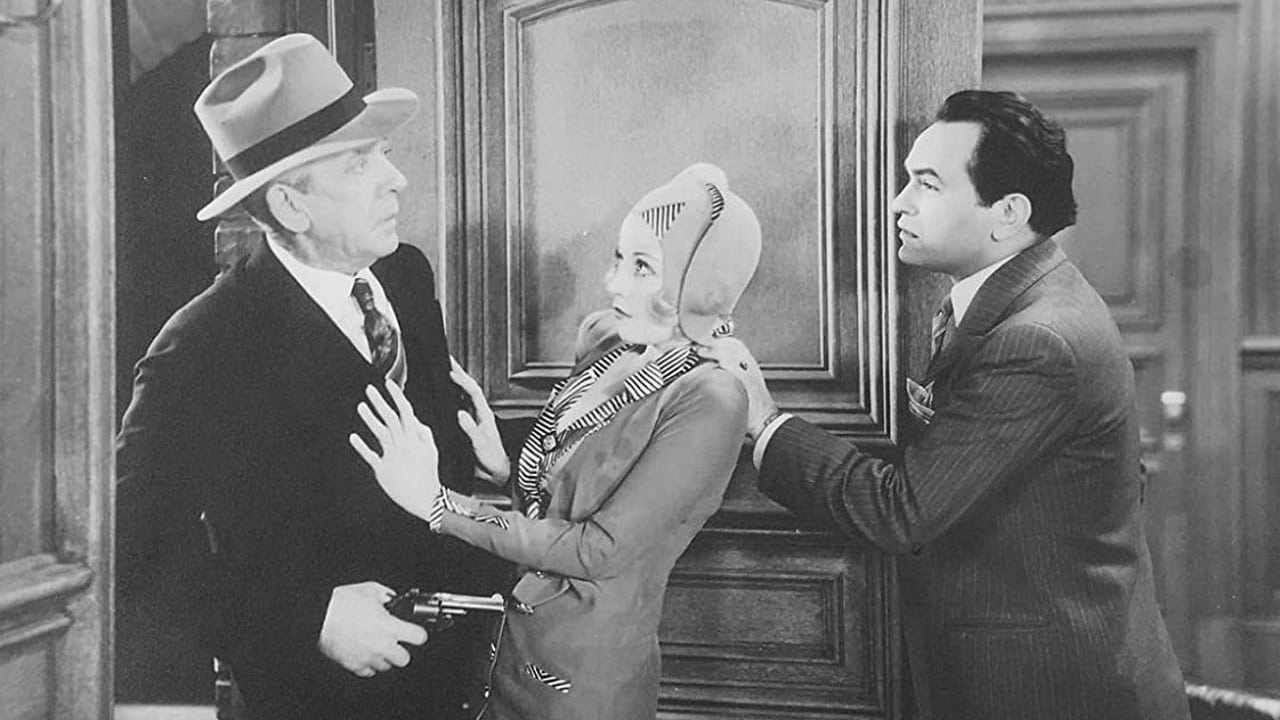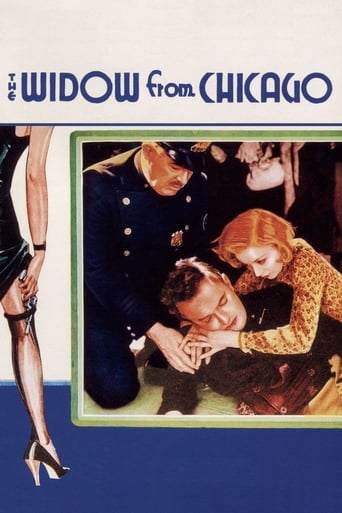

For the crime buff, Warner Brothers is undoubtedly the most interesting of the major Hollywood studios. Right from the very start, the Brothers established a tradition of hard-hitting realism that left other studios for dead. Of course, it's problematic if the film-makers would have continued in this vein if their socially-conscious product hadn't also been extremely popular with audiences. No doubt titivating titles like Why Girls Leave Home helped. This 1921 account of the big city's corrupting influence was not only the studio's first feature film, but its first big success. The Warners followed with Parted Curtains, the first in a long succession of hard, grittily realistic movies about crime and criminals. Even their third offering, School Days, had nothing to do with the type of school the title brings to mind. It's no accident therefore that down the track Warner Brothers became home to the screen's three greatest gangster icons: Edward G. Robinson, James Cagney and Humphrey Bogart. All three made interesting "B" movies before their stars became firmly established. Robinson joined the super-star ranks with his Little Caesar (1930), Cagney leapt into fame in the title role of The Public Enemy (1931), whilst Bogart refined his definitive gangster in The Petrified Forest (1936). Made immediately before Little Caesar, The Widow from Chicago already finds Robinson on familiar ground. Third billed, he plays a ruthless liquor lord, determined to kill off his rivals for control of the city. One of his victims is an undercover police detective. The cop's sister decides to avenge her brother by getting the goods on Robinson herself. She takes a job in his speakeasy. The plot then develops along familiar lines, although a few unexpectedly suspenseful (if unlikely) twists keep interest high right through to a thrillingly-staged action climax. In the acting department, Robinson easily walks away with the movie. His characterization of the gangster is already fully developed, all his familiar mannerisms of speech and gesture firmly in place. Unfortunately, the other principals, particularly pouting, mousey-voiced Alice White as the widow and relentlessly wooden Neil Hamilton as the good/bad hero, are a sorry lot. I picked comic Frank McHugh as the best of a poor bunch. His interpretation of this standard dumb stooge becomes not only disturbing but oddly sympathetic. At the climax when he neatly corners himself in a patrol wagon, you can't help feeling a bit sorry for him. Hes just a friendly, loyal but not overbright guy who's grown up and lived with the mob all his life. Society has never given him a chance. Although obviously struggling with the demands of sound in many of the dialogue encounters, director Edward Cline really comes to life once the camera moves into the action spots. The climax rates as an absolute stunner, yet it's not way over the top as the similar finish to M-G-M's The Beast of the City where guns popped and cops dropped all over the place. Just one killer in the spotlight here, but what a spotlight! The equally convincing street scenes were doubtless all filmed on the studio's back lot, but they retain the gritty, mean feel of real streets filled with real slum-dwelling, Depression-era people.
... View MoreThis is a very forgettable gangster film that Edward G. Robinson made a year before becoming a mega-star with his breakout movie, "Little Caesar". While he isn't bad in "The Widow From Chicago", the film itself is really ridiculous and I am sure it didn't do much for his career.When the film begins, Polly (Alice White) learns that her brother is a cop and is planning on infiltrating Dominic's gang. He's going to pretend he's Swifty--a gangster who the authorities believe is dead. However, his real identity is discovered and he's soon murdered...perhaps by Dominic (Robinson) himself. The spunky Polly decides her next course is to infiltrate Dominic's mob and she gets a job as a dance hall girl. She quickly gains Dominic's trust by pretending to be Swifty's wife but a serious glitch occurs when the REAL Swifty (Neil Hamilton) arrives! Here is where it gets REALLY hard to believe...as Swifty decides to go along with it and pretends Polly really IS his wife!! Why?? I have no idea!! The rest is exciting...but ultimately completely ridiculous due to the inexplicable relationship between Swifty and Polly. Well worth seeing but totally ludicrous.
... View MoreWidow from Chicago, The (1930) ** (out of 4) Early gangster film from Warner has Alice White playing Polly Henderson, a woman who sees her brother get gunned down by a bunch of thugs. The woman pretends to be the widow of another gangster who is presumed dead and she crashes in on thug Dominic (Edward G. Robinson) to try and find out who killed her brother. THE WIDOW FROM CHICAGO is a fairly entertaining film that's going to mainly play to those who want to see Robinson in the role of a gangster a year before he became a star with LITTLE CAESAR. There's really nothing to compare in terms of the two performances as it's clear Robinson was still trying to find it acting chops. He's certainly good here but it's easy to see why this film didn't make him a star. It should go without saying but there's very little going on with the screenplay other than a few twists and turns that most viewers are going to pick up on long before they happen. The screenplay itself is pretty silly as there are all sorts of wacky things that happen including the entire bit with the real gangster (Neil Hamilton) who's supposed to be dead showing back up and throwing a wrench in the plans of White. The twist in what happens to Robinson is downright silly and so far-fetched that you almost have to laugh at it. As for White, she's certainly not in the same league as the legends from this era and while her performance is far less from what I'd consider good, there's no doubt that she has a presence on the screen. Her and Robinson do fine work together and certainly help the weak material. The supporting cast offers up Frank McHugh playing the comic bit but he doesn't get a chance to do too much. In the end this is a pretty forgettable film but the addition of Robinson makes it worth viewing for fans of his or the genre.
... View MoreEdward G. Robinson and Alice White star in this early Warner Bros. gangster flick. White is the sister of a murdered policeman, and she sets out to find her brother's killer by impersonating the widow of a dead gangster and cozying up to Robinson, a rackets boss. There are even more complications in this, frankly, badly directed film (Edward F. Cline fared much better as a comedy director at Universal later in his career), several of the supporting performances are either weak or hammy, the film tends to meander and has quite a few dead spots, but Robinson and the unjustly neglected (and very sexy) Alice White do quite well despite the convoluted plot. It's main interest is as a precursor to the classic WB '30s gangster films, and you can see the famous Warners style emerging. It's just a pity that the film itself is so mediocre. It's worth a look to see where Warners was going with the gangster genre, and you can see a lot of Joan Blondell in the vivacious Alice White, but other than that, it's nothing really special, and doesn't hold a candle to Robinson's later work in "Little Caesar" and "Smart Money," which came out a year later.
... View More